Loading the player...
Abemaciclib Represents ‘New Standard of Care’ for Patients With High-Risk Early Breast Cancer
The addition of abemaciclib to standard endocrine therapy significantly reduced recurrence risk in patients with high-risk HR–positive, HER-2–negative early breast cancer, according to phase 3 study results presented at the ESMO Virtual Congress 2020.
Abemaciclib, an oral CDK4/6 inhibitor, is the first therapeutic agent in its class to significantly improve invasive disease-free survival (IDFS) in this patient population, according to Stephen Johnston, MA, PhD, FRCP, professor of breast cancer medicine and consultant medical oncologist, Royal Marsden Hospital NHS Foundation Trust.
“This is the first time in 20 years that we have seen an advance in the adjuvant treatment of this form of breast cancer. CDK4/6 inhibitors such as abemaciclib have transformed the way we treat metastatic breast cancer...it was an obvious next step to see whether adding abemaciclib to hormone treatment in patients with high-risk early breast cancer could reduce the risk of their cancer returning," Stephen Johnston, MA, PhD, FRCP, professor of breast cancer medicine and consultant medical oncologist, Royal Marsden Hospital NHS Foundation Trust, said during his presentation.
The majority of patients with HR–positive early breast cancer are cured through conventional treatments, such as surgery, radiation, chemotherapy or hormone treatment.
However, approximately 20% of patients with high-risk disease experience local and distant recurrence, requiring further treatment.
The researchers conducted the open-label, phase 3 monarchE clinical trial, which recruited patients who completed primary treatment for HR–positive, HER-2–negative early breast cancer.
Patients enrolled in the study had 4 or more positive nodes, or 1-3 positive nodes plus a tumor size of 5 centimeters or larger, histologic grade 3, or central Ki-67 expression of 20% or higher.
The study included data from 5637 patients, whom the researchers randomly assigned to abemaciclib (150 mg twice daily for 2 years) plus endocrine therapy or endocrine therapy alone. IDFS served as the study’s primary outcome measure. Secondary endpoints included distant relapse-free survival (DRFS) and safety.
The researchers observed that treatment with abemaciclib plus endocrine therapy resulted in a 25.3% reduction in the risk of an IDFS event (hazard ratio, 0.75; 95% CI, 0.6-0.93; P = .0096).
Patients assigned abemaciclib had a 2-year IDFS rate 92.2%, compared with 88.7% in the control group. The 2-year DRFS rate for patients assigned abemaciclib was 93.6%, compared with 90.3% in the control group.
According to Dr Johnston, the majority of reductions occurred in distant sites of metastases, such as the liver and bones.
The adverse-event profile of abemaciclib aligned with the drug’s known safety profile. The most common adverse events reported by patients assigned abemaciclib were diarrhea, neutropenia and fatigue. In the control group, the most frequent adverse events reported were joint pain, hot flashes and fatigue.
“This is a very important trial, and the findings will change clinical practice. Once approved for high-risk HR–positive, HER-2–negative early breast cancer, the new standard of care for these patients will be to add 2 years of abemaciclib to endocrine therapy," according to Giuseppe Curigliano, MD, PhD, associate professor of medical oncology, University of Milan, and chair of the ESMO Guidelines Committee.
By Cameron Kelsall, /alert Contributor
Abemaciclib, an oral CDK4/6 inhibitor, is the first therapeutic agent in its class to significantly improve invasive disease-free survival (IDFS) in this patient population, according to Stephen Johnston, MA, PhD, FRCP, professor of breast cancer medicine and consultant medical oncologist, Royal Marsden Hospital NHS Foundation Trust.
“This is the first time in 20 years that we have seen an advance in the adjuvant treatment of this form of breast cancer. CDK4/6 inhibitors such as abemaciclib have transformed the way we treat metastatic breast cancer...it was an obvious next step to see whether adding abemaciclib to hormone treatment in patients with high-risk early breast cancer could reduce the risk of their cancer returning," Stephen Johnston, MA, PhD, FRCP, professor of breast cancer medicine and consultant medical oncologist, Royal Marsden Hospital NHS Foundation Trust, said during his presentation.
The majority of patients with HR–positive early breast cancer are cured through conventional treatments, such as surgery, radiation, chemotherapy or hormone treatment.
However, approximately 20% of patients with high-risk disease experience local and distant recurrence, requiring further treatment.
The researchers conducted the open-label, phase 3 monarchE clinical trial, which recruited patients who completed primary treatment for HR–positive, HER-2–negative early breast cancer.
Patients enrolled in the study had 4 or more positive nodes, or 1-3 positive nodes plus a tumor size of 5 centimeters or larger, histologic grade 3, or central Ki-67 expression of 20% or higher.
The study included data from 5637 patients, whom the researchers randomly assigned to abemaciclib (150 mg twice daily for 2 years) plus endocrine therapy or endocrine therapy alone. IDFS served as the study’s primary outcome measure. Secondary endpoints included distant relapse-free survival (DRFS) and safety.
The researchers observed that treatment with abemaciclib plus endocrine therapy resulted in a 25.3% reduction in the risk of an IDFS event (hazard ratio, 0.75; 95% CI, 0.6-0.93; P = .0096).
Patients assigned abemaciclib had a 2-year IDFS rate 92.2%, compared with 88.7% in the control group. The 2-year DRFS rate for patients assigned abemaciclib was 93.6%, compared with 90.3% in the control group.
According to Dr Johnston, the majority of reductions occurred in distant sites of metastases, such as the liver and bones.
The adverse-event profile of abemaciclib aligned with the drug’s known safety profile. The most common adverse events reported by patients assigned abemaciclib were diarrhea, neutropenia and fatigue. In the control group, the most frequent adverse events reported were joint pain, hot flashes and fatigue.
“This is a very important trial, and the findings will change clinical practice. Once approved for high-risk HR–positive, HER-2–negative early breast cancer, the new standard of care for these patients will be to add 2 years of abemaciclib to endocrine therapy," according to Giuseppe Curigliano, MD, PhD, associate professor of medical oncology, University of Milan, and chair of the ESMO Guidelines Committee.
By Cameron Kelsall, /alert Contributor
.jpg)






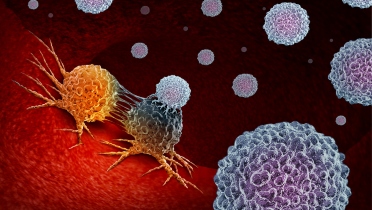
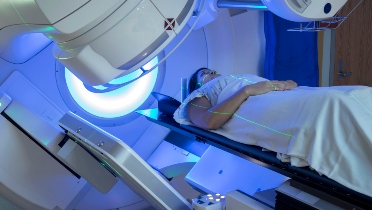






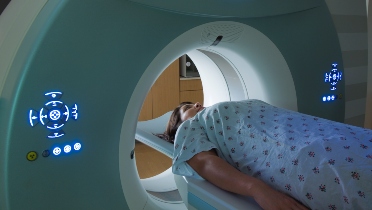
.jpg)
.jpg)
.jpg)


.jpg)

.jpg)

.jpg)
.jpg)
.jpg)

.jpg)

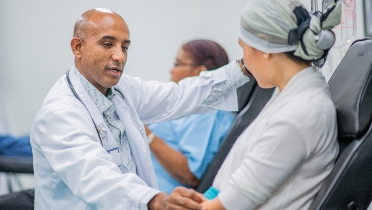


.jpg)
.jpg)
.jpg)
.jpg)
.jpg)
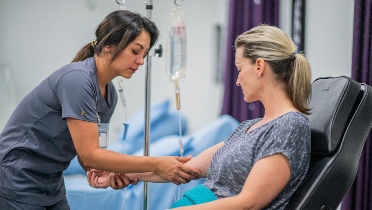
.jpg)
.jpg)
.jpg)
.jpg)

.jpg)
.jpg)
.jpg)

.jpg)
.jpg)
.jpg)
.jpg)
.jpg)
.jpg)
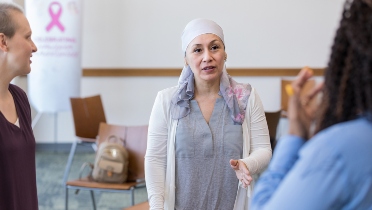
.jpg)
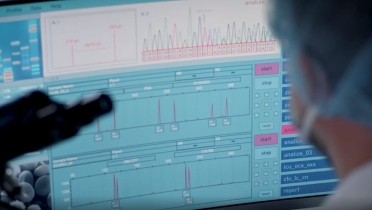
.jpg)

.jpg)
.jpg)
.jpg)
.jpg)
.jpg)
.jpg)
.jpg)
.jpg)
.jpg)
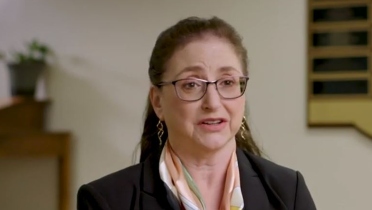
.jpg)

.jpg)
.jpg)

.jpg)
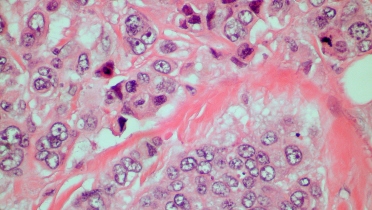
.jpg)
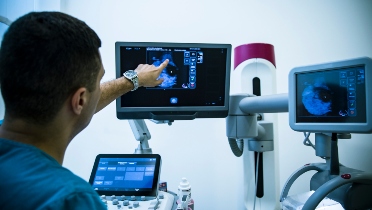
.jpg)
.jpg)


.jpg)
.jpg)


.jpg)
.jpg)
.jpg)
.jpg)
.jpg)


.jpg)

.jpg)
.jpg)
.jpg)

.jpg)
.jpg)
.jpg)
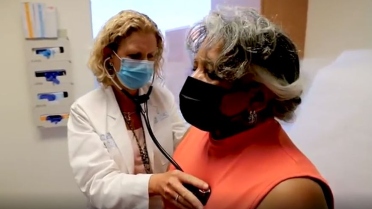
.jpg)
.jpg)
.jpg)
.jpg)
.jpg)
.jpg)
.jpg)
.jpg)
.jpg)
.jpg)
.jpg)
.jpg)
_.jpg)

.jpg)

.jpg)
.jpg)
.jpg)

.jpg)
.jpg)
.jpg)
.jpg)
 Featured Breast Cancer Videos
Featured Breast Cancer Videos.jpg)